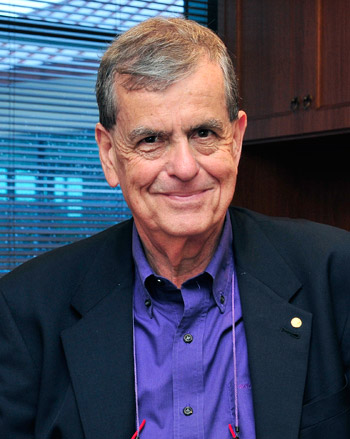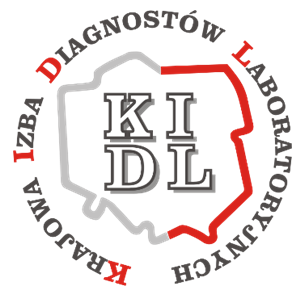

TOPICS |
||
|---|---|---|
| The Sessions will cover the following topics: 1. Classical Tumour Markers Present and Future I 2. From Tumour Biology to Biomarker-Based Decisions 3. European Group for Tumour Markers Session 4. Big Data for Biomarker Development 5. Circulating Cancer Cells 6. Molecular Therapeutics and Predictive Biomarkers 7. Immunotherapy and Immunological Markers for the Management of Cancer Patients 8. Biobanking/Horizon 2020 9. Interdisciplinary Challenges 10. Hormones in the Aetiopathogenesis of Cancer 11. Liquid Biopsy 12. Molecularly-Driven Therapies 13. Cancer Stem Cells 14. Cancer Risk and Cancer Screening 15. Epigenetic Profiling, Tumour-Derived Nucleic Acids 16. Towards Molecular Oncology - IncoNet EaP Session 17. Anticancer Drugs - New Developments, New Strategies 18. Molecular Tracing of Metastatic/Residual Diseases 19. Classical Tumour Markers Present and Future II 20. Targeting Tumour Microenvironment ROUND TABLE discussions will cover the following topics: 1. Early Cancer Diagnosis 2. Classical and Molecular Biomarkers in the Management of Cancer Patients - Strategies, Controversies, Opportunities. |
KEYNOTES |
||
|---|---|---|
Aaron Ciechanover Technion-Israel Institute of Technology, Haifa, Israel 2004 Nobel Prize winner, Biochemistry For the "discovery of ubiquitin-mediated protein degradation" The Ubiquitin Proteolytic System:
From Basic Mechanisms Thru Human Diseases and on to Drug Development |
||
 |
Gold Phil (McGill University, Montreal,Canada) |
In the beginning.... |
 |
Fritche Herbert (MD Anderson Cancer Center,Houston,USA) |
New Biomarkers and Panels for the Early Detection of Cancer |
 |
Stenman Ulf Hakan (University of Helsinki, Finland) |
Optimized Diagnosis of Prostate Cancer. Do you agree? |
Round Table Moderators |
||
| Ian Cree (University Hospitals Coventry and Warwickshire, Walsgrave, UK) |
Early Diagnosis | |
| Leendert Looijenga (Erasmus University Medical Centre, Rotterdam, Holland) |
Classical and Molecular Biomarkers in the Management of Cancer Patients - Strategies, Controversies, Opportunities. | |
CERTIFICATE OF ATTENDANCE |
||
|---|---|---|
|
||
CME |
||
|---|---|---|
| The 42nd ISOBM annual Congress "Oncology in the Biomarker Era: Biology ‑ Diagnostics ‑ Therapy" is accredited by the European Accreditation Council for Continuing Medical Education (EACCME) to provide the following CME activity for medical specialists. The EACCME is an institution of the European Union of Medical Specialists (UEMS), www.uems.net . The 42nd ISOBM annual Congress
"Oncology in the Biomarker Era: Biology – Diagnostics – Therapy” is designated for up to
Through an agreement between the European Union of Medical Specialists and the American Medical Association, physicians may convert EACCME credits to an equivalent number of AMA PRA Category 1 Credits™. Information on the process to convert EACCME credit to AMA credit can be found at www.ama-assn.org/go/internationalcme. Live educational activities, occurring outside of Canada, recognized by the UEMS-EACCME for ECMEC credits are deemed to be Accredited Group Learning Activities (Section 1) as defined by the Maintenance of Certification Program of The Royal College of Physicians and Surgeons of Canada. Click to see a Letter of Accreditation In order for the ISOBM 2015 Congress participants to evaluate properly statements presented during presentations (lectures, poster presentations, round table discussions etc.), it is important that the participants be informed of any aspect of a speaker's personal or professional circumstances that might affect significantly the speaker's attitude or judgment regarding the particular matter under consideration. The following procedure will be undertaken:
|
||
KIDL CREDITS |
||
|---|---|---|
 |
Polish laboratory diagnosticians participating in the ISOBM 2015 Congress will earn 31 credits from the National Chamber of Laboratory Medicine toward maintaining their professional certification. Click here to view official letter from National Chamber of Laboratory Medicine |
|
Speakers |
||
|---|---|---|
| First name | Name (town, country) |
Title of the talk |
| Vivian | Barak (Jerusalem, Israel) |
Assessing Response to New Treatments and Prognosis in Melanoma Patients, Using the Biomarker S-100β |
| Vivian | Barak (Jerusalem, Israel) |
Serum HER-2 as a Sensitive Tumor Marker in Breast Cancer Patients |
| Jan | Barciszewski (Poznan, Poland) |
New Nucleic Acid-based Markers of Human Diseases |
| Grzegorz | Basak (Warsaw, Poland) |
Gut Microbiome in Hematooncology: Significance and Opportunities of Modulation |
| MG (Hans) | Bonfrer (Heemstede, Holland) |
Introduction of an Immunological Faecal Blood Test in the Dutch National Screening Program for Colon Cancer |
| Krzysztof | Brzózka (Cracow, Poland) |
Identification of a Dual PIM/FLT3 Kinase Inhibitor for the Treatment of Haematological Malignancies |
| Caroline | Chapman (Nottingham, UK) |
Autoantibodies as Immune Biomarkers in Cancer. Opportunities for Early Cancer Detection? |
| Ian | Cree (Coventry,United Kingdom) |
The Challenge of Early Cancer Detection |
| Joe | Duffy (Dublin, Ireland) |
Biomarkers in Breast Cancer: What is New? |
| Joe | Duffy (Dublin, Ireland) |
Molecularly Targeted Therapy: The Future in Cancer Treatment? |
| Józef | Dulak (Cracow, Poland) |
Janus face of molecular pathways in cancer: a case of Nrf2 and heme oxygenase-1 |
| Radka | Fuchsova (Plzen, Czech Republic) |
Vitamin D and Cancer Diseases |
| Sebastian | Giebel (Gliwice, Poland) |
Monitoring of Minimal Residual Disease in Acute Lymphoblastic Leukemia. Prognositc Relevance and Impact on Treatment Decisions |
| Michael | Giersig (Berlin, Germany) |
The Use of Functional Nanocomponents for the Diagnosis and Therapy of Cancer |
| Piotr | Guzenda (Warsaw, Poland) |
The Ideally Suited RNA-seq Method: Iimpact on the Data |
| Knut | Hamann (Waltham, USA) |
New Molecular Techniques for Liquid Biopsy Analysis |
| Siegfried | Hauch (Langenhagen,Germany) |
Circulating Tumor Cells: the Seeds of Metastazation |
| Stefan | Holdenrieder (Bonn, Germany) |
Liquid Profiling of KRAS-status on Circulating Plasma-DNA in Patients with Pancreatic Cancer |
| Stefan | Holdenrieder (Bonn, Germany) |
Progastrin-releasing peptide as a biomarker for clinical response in small-cell lung carcinoma. Results from the Roche ProGRP study. |
| Ahmad | Jalili (Vienna, Austria) |
Non-Melanoma Skin Cancers and Targeted Therapies; Dreams Come True |
| Krystian | Jażdżewski (Warsaw, Poland) |
Genetic Risk Markers of the Overall Survival of Thyroid Cancer Patients |
| Alicja | Józkowicz (Cracow, Poland) |
Stressful Way to Maturation - Role of Heme Oxygenase-1 in Rhabdomyosarcoma |
| Monika | Jurkowska (Warsaw, Poland) |
Primary and Secondary Findings in the Genomic Analysis as a Part of a Prophylactic and Therapy Process in Cancer |
| Sherif | Karam (Al-Ain, UAE) |
Role of Stem Cells in Gastric Cancer |
| Claudine | Kieda (Orleans, France) |
New Angiogenesis-Based Therapeutic Strategies to Compensate Tumor Hypoxia and Stably Normalize Vessels Transform Tumor Microenvironment and Potentiate Cancer Treatment |
| Judita | Kinkorova (Prague, Czech Republic) |
Biobank in Pilsen as a New Member of National Node BBMRI_CZ |
| Rainer | Klpador (Hamburg, Germany) |
Biomarkers as Relevant Parameters for Prolongation of Overall Survival-Results on 438 Pancreatic Cancer (PaCa) Patients |
| Magdalena | Kowalewska (Warsaw, Poland) |
Estimation of Recurrence Risk in Patients with Squamous Cell Vulvar Carcinoma by the Assessment of Marker Gene Expression |
| Łukasz | Kozera (Wroclaw, Poland) |
Biobanking and Personalized Medicine |
| Maciej | Krzakowski (Warsaw, Poland) |
Non-Small-Cell Lung Cancer - Current Status and Perspectives of Targeted Therapy |
| Marzena | Lewandowska (Bydgoszcz, Poland) |
Prostate Cancer Translational Research: from Cell Line to Plasma miRNA Biomarkers |
| Leendert | Looijenga (Rotterdam, Holland) |
Human Germ Cell Tumors, from Biology to Clinic |
| Andrzej | Mackiewicz (Poznan, Poland) |
Immunotherapy and Immuno-Markers in Melanoma |
| Sergiusz | Markowicz (Warsaw, Poland) |
Perspectives of the Use of Differentiation-Inducing Factors to Counteract Regrowth of Colon Cancer after Conventional Chemotherapy |
| Rafael | Molina (Barcelona, Spain) |
Are we Using Tumor Markers Correctly? |
| Rafael | Molina (Barcelona, Spain) |
SCC Antigen - First Results from the Elecsys SCC Multicenter Evaluation |
| Rafael | Molina (Barcelona, Spain) |
Tumor Markers HE4 and CA 125 in the Follow-up of Patients with Ovarian Cancer |
| Ricardo | Moro (Richmond, Canada) |
Cancer Imaging and Therapy Using the Receptor for AFP (RECAF) as a Target |
| Tomas | Muley (Heidelberg, Germany) |
The Combination of Serum Biomarkers CYFRA21-1 and CEA Improves Prognostication in Early Stage Non-Small Cell Lung Cancer (NSCLC) |
| Andrea | Nicolini (Pisa, Italy) |
Clinical and Laboratory Patterns During Immune Stimulation in Hormone Responsive Metastatic Breast Cancer |
| Michael | Ostrowski (Columbus, USA) |
Genetic Analysis of Stromal Tumor Suppressor Pathways in Breast Cancer |
| Luca | Quagliata (Basel, Switzerland) |
NGS for Routine Diagnostics: What is the Real Benefit |
| James | Radosevich (Chicago, USA) |
Rethinking the Tumor Stem Cell Theory |
| Piotr | Rieske (Łódź, Poland) |
Rational Combinations of Targeted Anticancer Therapies |
| Matt | van de Rijn (Stanford, USA) |
Novel Biomarkers and Therapeutic Targets in Sarcoma |
| Piotr | Rutkowski (Warsaw, Poland) |
Developments in Targeted Therapy of Malnoma |
| Marta | Sanchez-Carbayo (Vitoria-Gasteiz, Spain) | Prognostic Urinary Biomarkers in Bladder Cancer |
| Stewart | Sell (Albany, USA) |
Nanoparticle Directed Therapy of Breast Cancer Stem Cells |
| Jan Kondrad | Siwicki (Warsaw, Poland) |
Plasticity of cancer stem cell-like phenotype. Phenformin-resistant variants of ovarian cancer cell line IGROV1 |
| Denis A. | Smirnov (Spring House, USA) |
Molecular Characterization of Circulating Tumor Cells: Opportunities and Challenges |
| Šárka | Svobodova (Plzen, Czech Republic) |
Metabolic Syndrome as a Risk Factor for Cancer Development |
| Ewa | Szkiłądź (Warsaw, Poland) |
Horizon 2020 Health |
| Jolanta | Tarasiuk (Szczecin, Poland) |
Targeting NF-kB to Reduce the Metastatic Potential of Multidrug Resistant Tumor Cells |
| Ondrej | Topolčan (Plzen, Czech Republic) |
Tumor Markers for Early Diagnostics and Therapy Monitoring in Cancer. |
| Ondrej | Topolčan (Plzen, Czech Republic) |
Hormones Influencing Cancer Development |
| Maciej | Wiznerowicz (Poznan, Poland) |
Applying TCGA Data for Cancer Diagnostics and Pathway Analysis |
| Iwona | Włodarska (Loeven, Belgium) |
Non-Invasive Detection of Genomic Imbalances in Hodgkin/Reed-Sternberg Cells in Early and Advanced Stage Hodgkin’s Lymphoma by Sequencing of Circulating Cell-Free DNA |